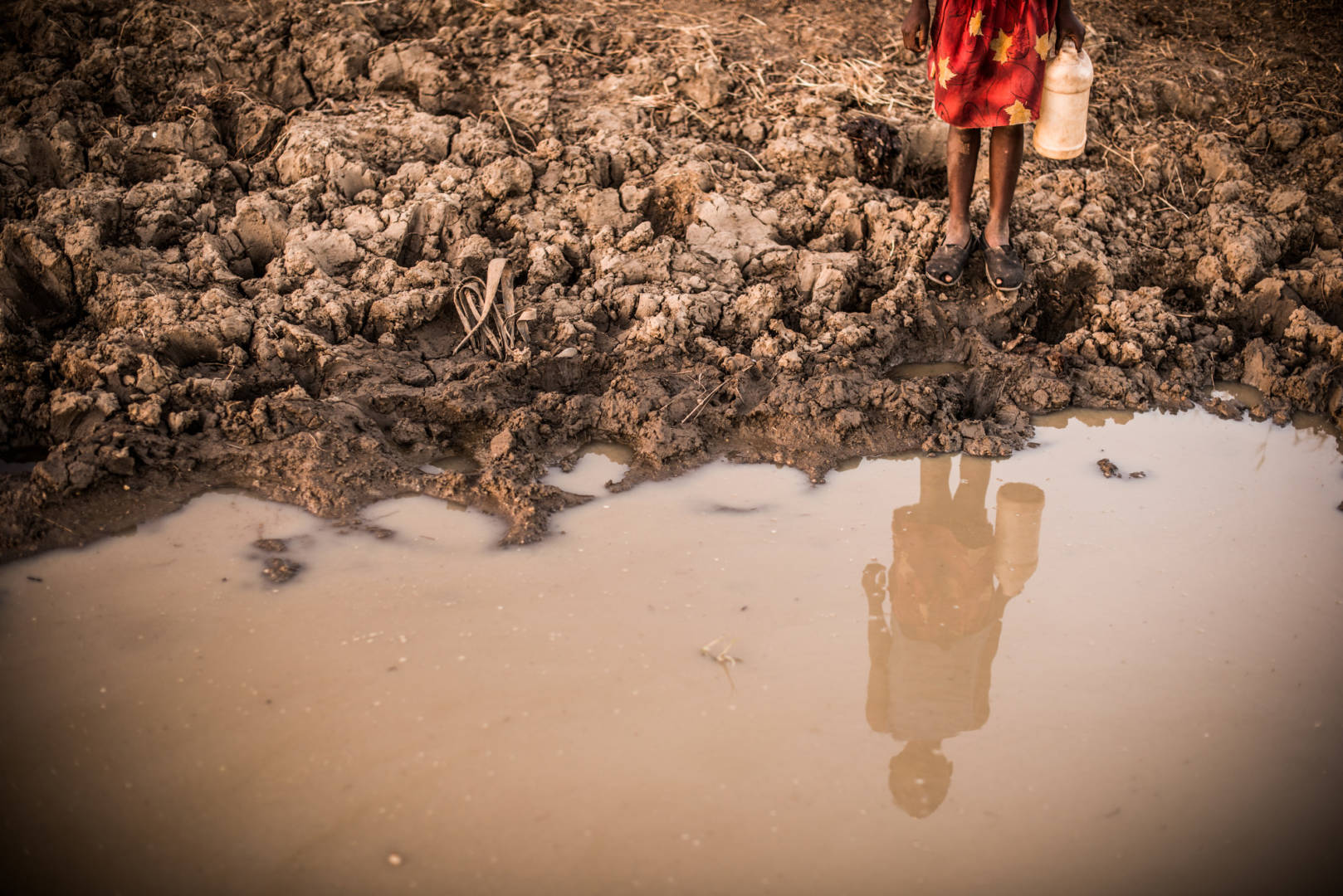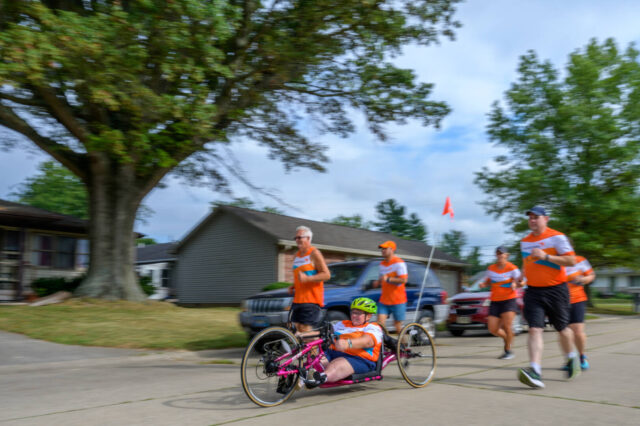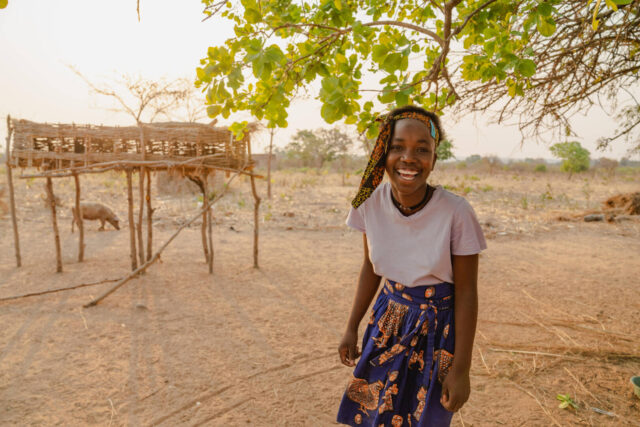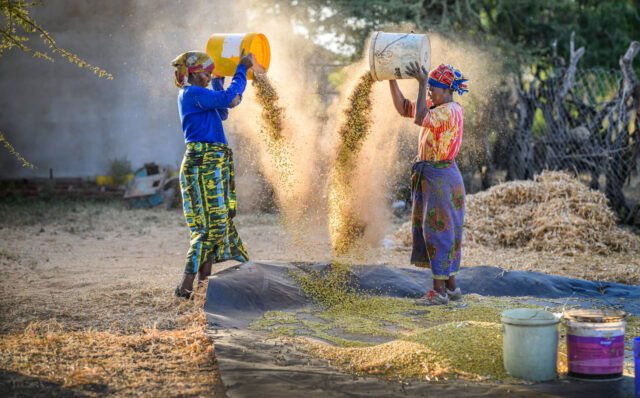Dorcas drew water four times daily from a filthy hole where animals drink and die. She had no other choice.
The people of Bulanda village in Zambia despise their water source. “I don’t like this water at all,” says 9-year-old Dorcas Hamasamu.
Everyone in the village agrees with the spunky little girl. This water is awful. Truly hideous. One dirty water hole serves 86 households in this village.
“A cow fell in [the water hole] today,” says villager Rosina Buumba, 44. “A group of cows were drinking and a calf fell in. Another cow fell in five days ago.”
Neither cow died. But a dog did.
“The dog fell in three weeks ago. It decayed,” says Rosina. “We couldn’t see the dog but then the fur floated to the surface. The dog fell in deep and got coiled up in some roots. We looked with a stick to unhook the dog.
“When it came up, it was white, like it had been skinned.”
Perpetually sick and unschooled
Dorcas, 9, and her cousin Beauty, 13, live with Mera, their grandmother. “Both their mothers are married,” says Mera. “I asked for them to live here and help me out.”
Mera needs her granddaughters’ help to survive. She’s HIV positive and often sick.
When they aren’t sick themselves or taking care of their granny, both girls go to Bulanda Basic School. “Dorcas is a girl who loves school and playing,” says Mera.
But Dorcas must also get water four times a day from the dirty water hole.
“She usually has diarrhea, but she is a strong girl,” continues Mera. “She makes herself do things, even if she is not well.”
Mera gazes at Dorcas with a grandmother’s love, while the girl busily scrubs an iron pot.
“When I look at Dorcas,” says Mera, “I see someone who will excel at education. But when she gets sick, or I get sick, she stays at home to help me. She will have a bright future if we get water.”
Mera is right. This family needs water. Clean water is key to Dorcas’ success in school. And right now, she is failing.
Cobert Muyumbe, 42, the headmaster at school looks through her attendance records and muses sadly, “I wonder if Dorcas has reported this term?”
The book reveals nothing but a string of absences. The quarter before showed that Dorcas was absent 12 times in nine weeks.
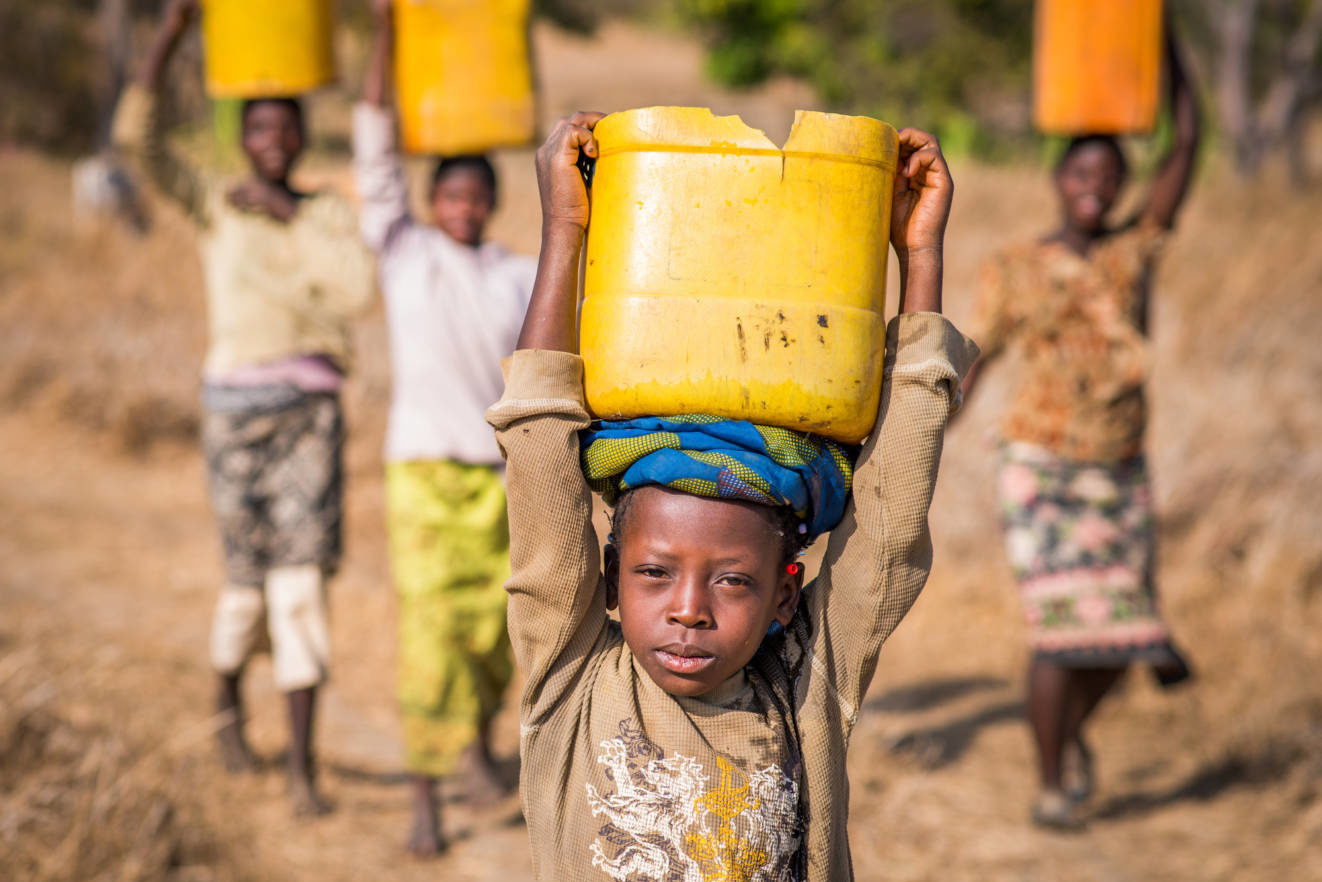
Dorcas, 9, carries water she gathered from the exposed water hole in her community of Bulanda, Zambia. The water is filthy, causing illness and keeping children like Dorcas out of school. (©2015 World Vision/photo by Jon Warren)
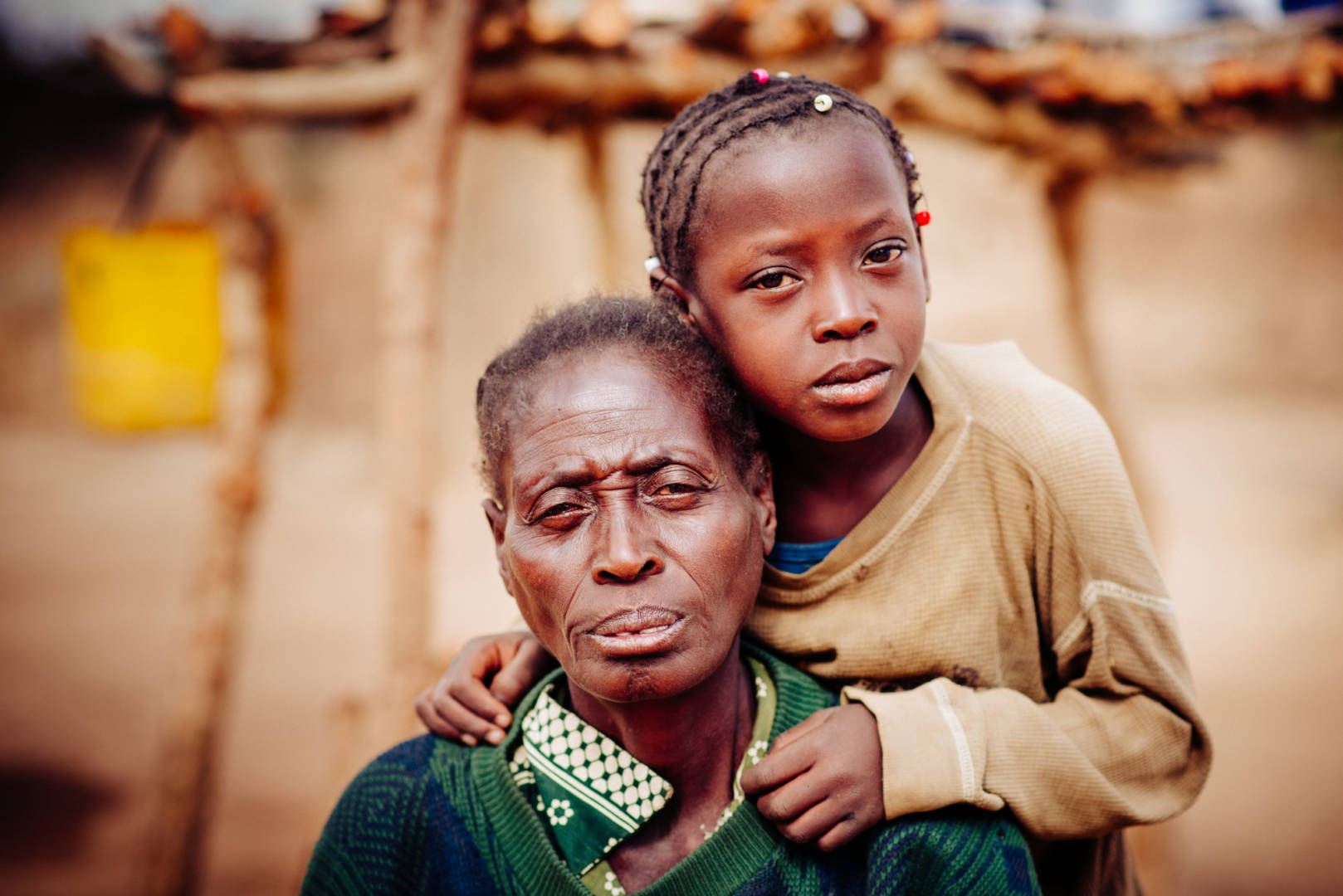
Dorcas’ grandmother, Mera, says her granddaughter has great potential — but her school attendance record shows constant absences because she has to trek to the water hole four times a day to collect water that makes her sick. Despite her frequent illness, Dorcas always stays busy helping Mera, who is HIV positive. (©2015 World Vision/photo by Jon Warren)
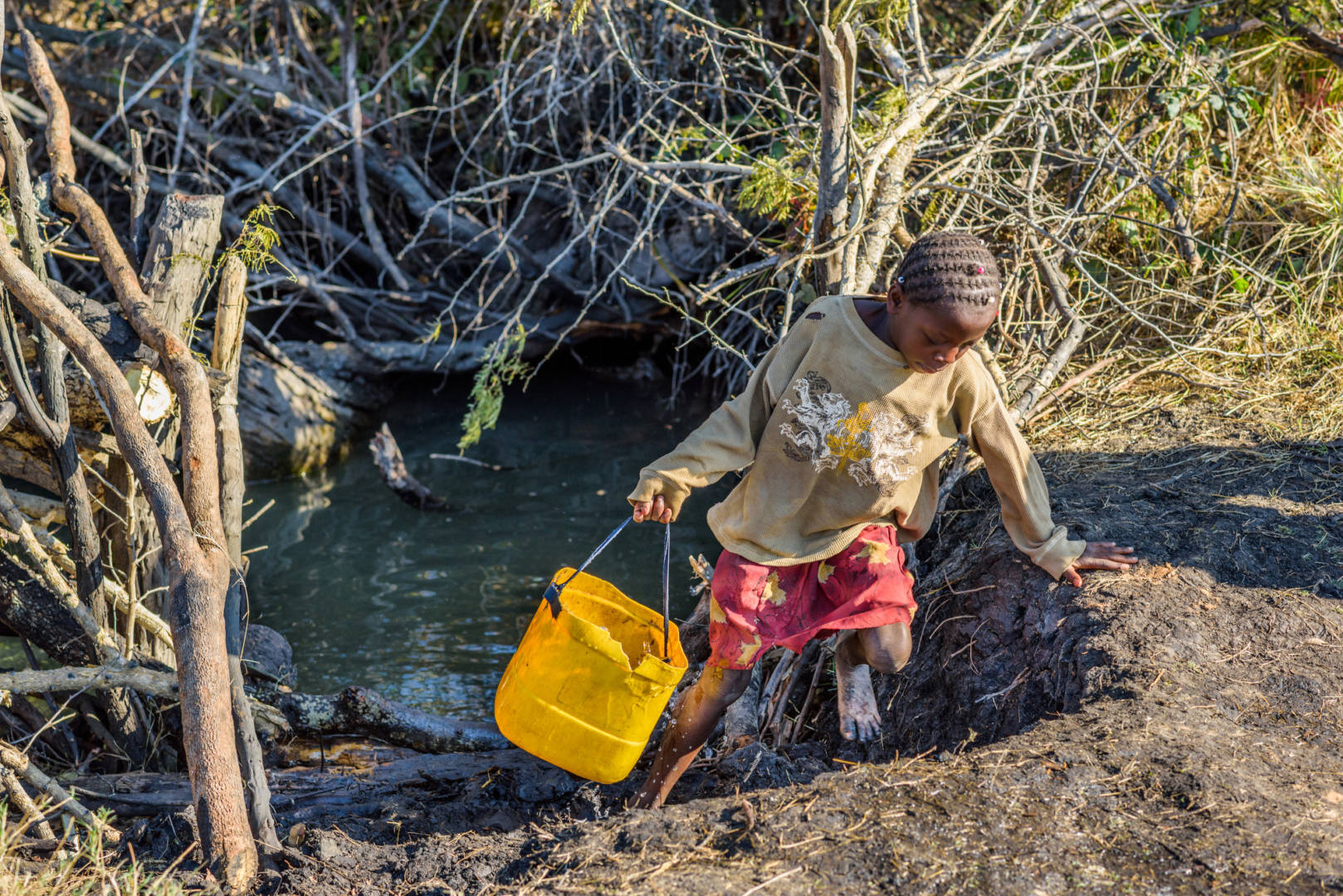
Dorcas retreats with a full bucket from the open water hole, also the site where animals drink, bathe, defecate, and even die. (©2015 World Vision/photo by Jon Warren)
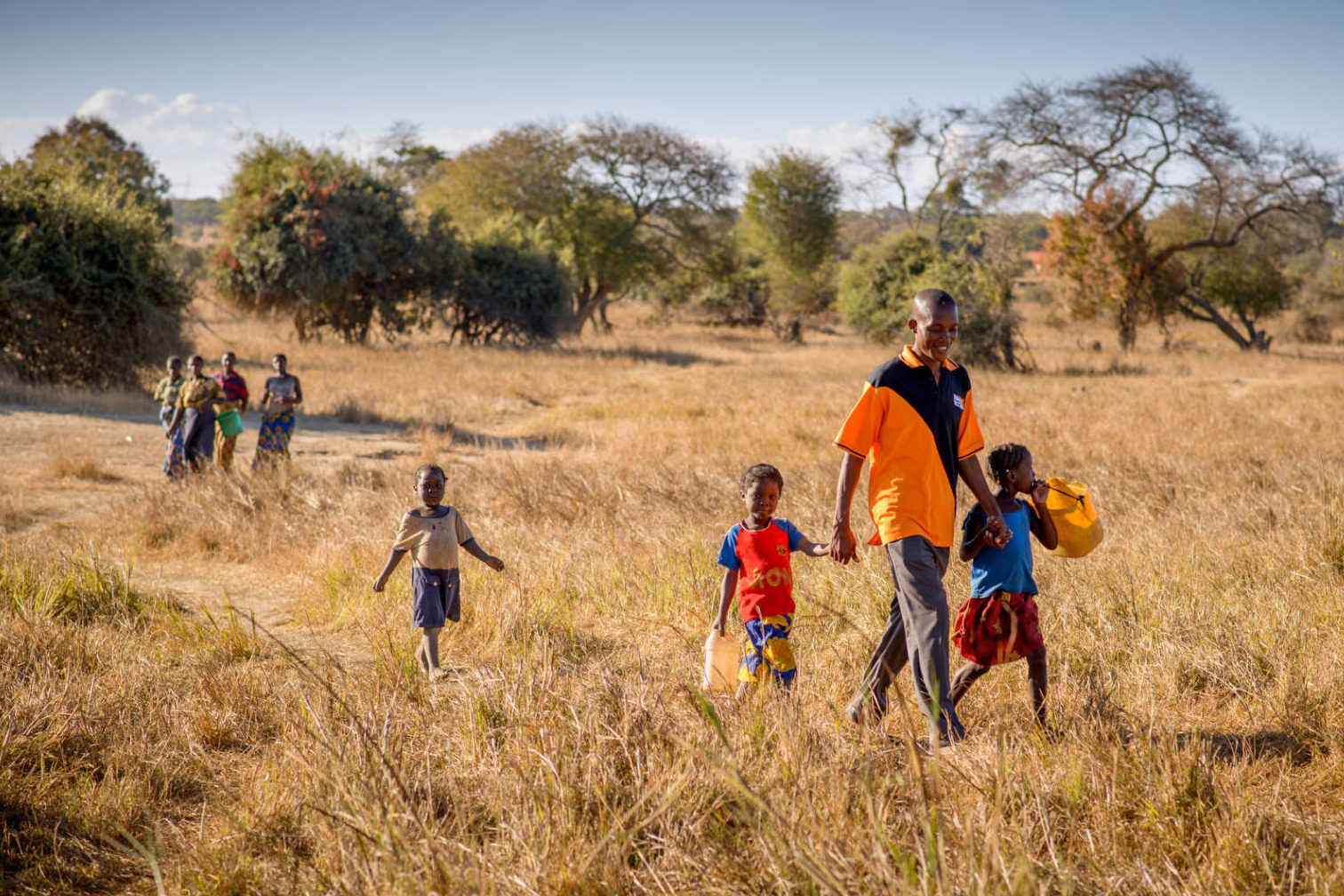
Dorcas is just one among many children who regularly trek to this water hole to gather filthy water. Simply by getting access to a clean, safe water source, all of these children would suffer less illness and have more time to study and go to school. (©2015 World Vision/photo by Jon Warren)
Dorcas is not alone
Around the world, 663 million people have no access to clean water. Without clean water, they can die.
Diseases due to contaminated water and poor sanitation took the lives of 300,000 children under 5 in 2015. That’s 34 children an hour.
It’s as if every hour of every day, a classroom full of children disappears forever.
Women and girls around the world, just like Dorcas, spend 200 million hours each day collecting water. Not only is this a waste of time, it takes away from the valuable things a woman or girl could be doing, such as studying, being with family, working, worshipping, or even resting.
That’s why World Vision has worked for 30 years to provide safe water and improved sanitation and hygiene to those who need it. With a team of 500 experts working in communities around the world, World Vision reaches one new person with safe water every 10 seconds.
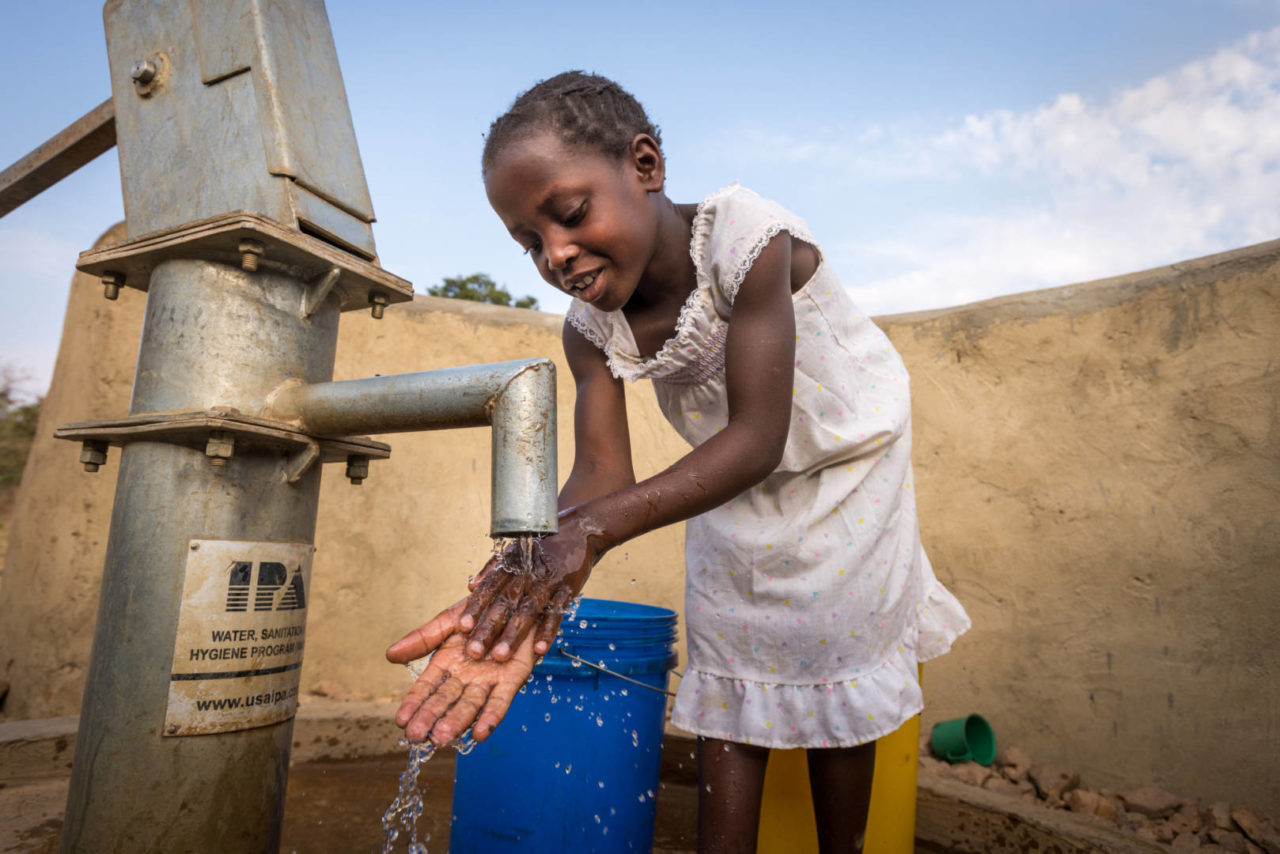
Clean water: A new life
Dorcas is one of those people. She and her community now have a new well. Dorcas’ cousin, Beauty, pumped the first mouthfuls of clean, clear water from a borehole in the middle of the community — just a short walk away from Dorcas’ house. Dorcas has a sponsor in Tacoma, Wash., who loves her — Bonnie, a mother of two boys. Dorcas is her girl.
Today Dorcas is a different person. Her grandmother, Mera, is in much better health. She’s no longer sick all the time and can take her HIV medication. Because she’s back in school, Dorcas has moved to fifth place in her class. “But I want to be first,” she says.
And knowing this tenacious little girl, she will.
